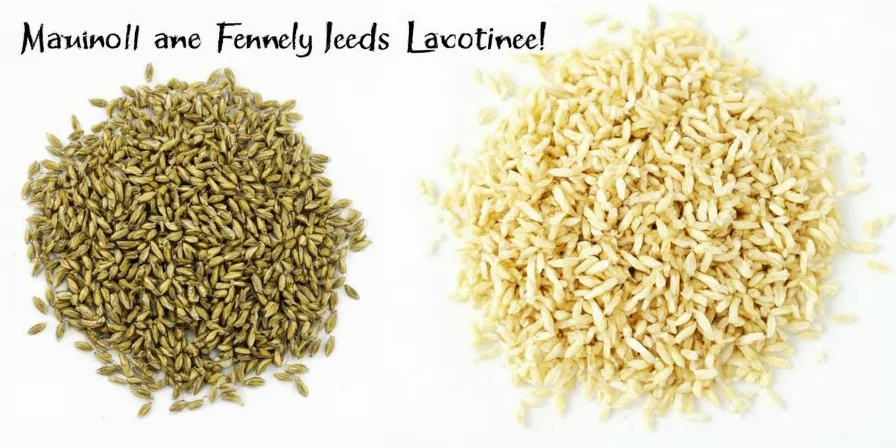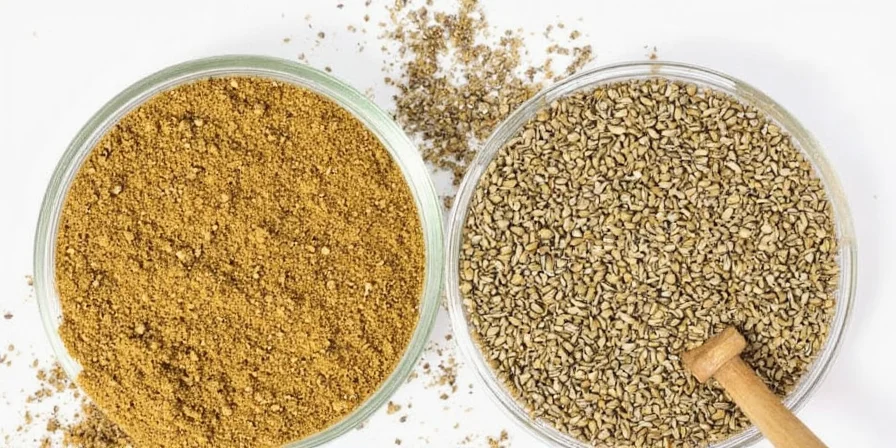Fennel Seeds Ground: From Spice Rack Staple to Flavor Superstar
If you've ever tasted licorice, anise, or even a certain Italian sausage and thought, "I need more of this in my life," then congratulations—you're already a fan of fennel. But here's the twist: we're not talking about the bulb. We're diving deep into the world of ground fennel seeds, that underrated powerhouse hiding in your spice rack. Whether you're a seasoned pro or just starting out on your spice journey, this post will give you the lowdown on how to make the most of this aromatic all-rounder.
Table of Contents
- What Exactly Are Ground Fennel Seeds?
- Flavor Profile & Aroma: What Makes It Unique
- 5 Genius Ways to Use Ground Fennel in Everyday Cooking
- Roasted vs. Ground Fennel Seeds: Does It Make a Difference?
- Spice Pairings That Will Blow Your Mind
- How to Store Ground Fennel Seeds Like a Pro
- Fun Facts You Can Show Off at Parties
What Exactly Are Ground Fennel Seeds?
Ground fennel seeds are simply dried fennel seeds that have been crushed or milled into a fine powder. The seeds come from the fennel plant (Foeniculum vulgare), which is native to the Mediterranean but now grown around the globe. While whole fennel seeds are commonly used in pickling, breads, and sausages, grinding them unleashes a more concentrated flavor that blends seamlessly into spice mixes, dry rubs, and baked goods.

Flavor Profile & Aroma: What Makes It Unique
Fennel has a sweet, slightly herbal flavor with hints of anise and licorice. When ground, it becomes more mellow and integrates better into dishes without overpowering other flavors. Its aroma is earthy yet fragrant—think fresh herbs with a touch of warmth. Unlike its close cousin star anise, ground fennel doesn’t scream “licorice!”; instead, it’s more of a background player that adds depth and complexity.
| Flavor Note | Description |
|---|---|
| Sweetness | Mildly sweet, similar to caraway |
| Herbal | Faint notes of dill and tarragon |
| Earthy | Root-like undertones |
| Warmth | A gentle, lingering heat |
5 Genius Ways to Use Ground Fennel in Everyday Cooking
Ready to level up your spice game? Here are five creative ways to use ground fennel that might surprise you:
- Meat Rubs: Mix with paprika, garlic powder, and salt for a killer pork or lamb rub.
- Baking Boost: Add a pinch to bread dough or cookie recipes for a subtle herbal note.
- Bean Dishes: Sprinkle into lentil soups or chili to cut through the richness.
- Cheesy Comfort: Stir into cheese sauces or mac and cheese for extra depth.
- Indian-Inspired Chai: Blend with cardamom, cinnamon, and black pepper for homemade masala chai.
Roasted vs. Ground Fennel Seeds: Does It Make a Difference?
Short answer: Yes! Roasting whole fennel seeds before grinding them intensifies their flavor and enhances their natural oils. Think of it like turning up the volume on your stereo. If you’re looking for a deeper, nuttier profile, roast them in a dry skillet over medium heat for 2–3 minutes until fragrant. Then let cool and grind using a spice grinder or mortar and pestle.
Pro Tip:
To get the best results, store whole fennel seeds and only grind what you need right before use. Freshly ground spices always pack more punch!
Spice Pairings That Will Blow Your Mind
Fennel plays well with others. Here are some winning combinations:
- Cumin + Ground Fennel: For Middle Eastern flair in stews and rice dishes.
- Paprika + Lemon Zest: Adds brightness to grilled vegetables.
- Nutmeg + Clove: Perfect for spiced cakes and holiday cookies.
- Coriander + Chili Flakes: Ideal for bold tomato sauces and curries.
- Ginger + Orange Peel: Great in tea blends or dessert glazes.
How to Store Ground Fennel Seeds Like a Pro
Spices don’t last forever, especially once ground. Here’s how to keep your ground fennel tasting fresh:
- Store in an airtight container away from light and moisture.
- Label with the date you opened or ground it.
- Keep in a cool, dark place like a pantry or cabinet.
- For long-term storage, consider vacuum sealing or placing silica gel packs in the jar.
Expect a shelf life of about 6–12 months for maximum flavor. After that, it won't hurt you—it just won't bring the party to your plate anymore.
Fun Facts You Can Show Off at Parties
Time to flex those spice nerd muscles:
- The ancient Romans believed fennel could improve eyesight.
- Fennel was one of the nine sacred herbs in Anglo-Saxon medicine.
- In Indian cuisine, chewing fennel seeds after meals is considered good for digestion—and as breath freshener!
- It’s gluten-free, vegan, and keto-friendly—so it checks every modern dietary box.
- The word “fennel” comes from the Latin “feniculum,” meaning “hay” or “littoral,” referring to where it grew naturally.

Conclusion
So there you have it—everything you never knew you needed to know about ground fennel seeds. From boosting your meat rubs to jazzing up your baking, this humble spice deserves a prime spot in your kitchen. Whether you’re a chef-level spice junkie or just getting started, don’t underestimate the power of that little jar collecting dust behind the oregano.
Next time you see a recipe calling for fennel, don’t skip it. Grind it fresh, roast it if you’re feeling fancy, and savor the layers of flavor it brings. Happy seasoning!










 浙公网安备
33010002000092号
浙公网安备
33010002000092号 浙B2-20120091-4
浙B2-20120091-4